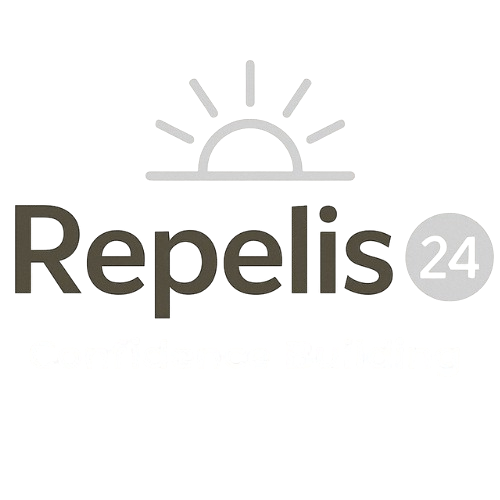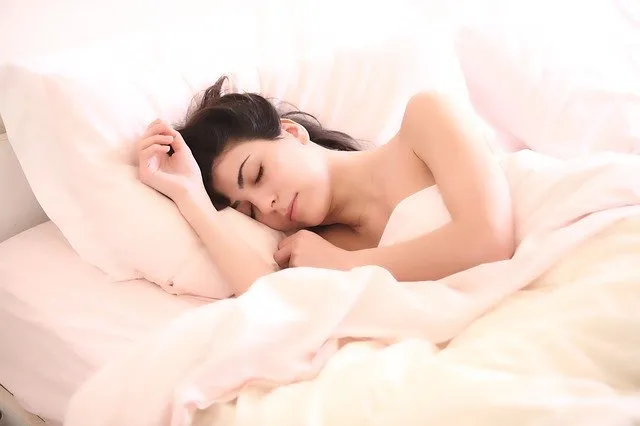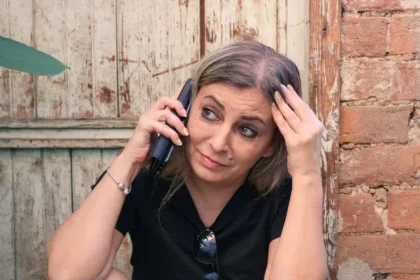People always say you need eight hours of sleep. It’s repeated so much you almost stop questioning it, like it’s carved in stone. Get your eight, and you’ll wake up fresh, right? Ready to take on the day.
Except… maybe not.
I’ve had mornings where I followed that “rule” to the letter, yet woke up feeling worse. Heavy head, stiff joints, moving like I’d been working all night instead of resting. That groggy, drained feeling didn’t make sense at first. But the more I read and paid attention to my own patterns, the clearer it got: sleep isn’t about hitting a magic number on the clock.
It’s about how your body runs, not some blanket formula that’s supposed to work for everyone.
So here’s what I’m going to walk through: why sticking to the “eight-hour rule” can sometimes leave you more tired, how it messes with both your mood and your body, and the common myths about sleep that most people still believe. If you’ve been dragging yourself through the day and blaming everything but your sleep habits, you might want to hear this.
Why 8 Hours Might Be Sabotaging You
Let’s start with the big shock: 8 hours of sleep isn’t a one-size-fits-all deal. Your body runs on sleep cycles, chunks of about 90 minutes each, where you move through light sleep, deep sleep, and that dreamy REM stage. Most people feel best after 5 full cycles—that’s 7.5 hours. Hit 8 hours, and you might wake up mid-cycle, stuck in deep REM. That’s when sleep inertia kicks in— that foggy, “I can’t move” feeling that sucks the life out of your morning. I’ve felt it: alarm goes off, and I’m staring at the ceiling, half-dead, even after “enough” sleep.
Worse, oversleeping can mess with your body. Studies show that sleeping more than 9 hours regularly ramps up inflammation markers like C-reactive protein. That’s bad news— inflammation links to aches, fatigue, and even long-term stuff like heart issues. Emotionally, it’s a gut punch too. I’ve woken up after 8.5 hours feeling down, like the day’s already lost. It’s because your brain doesn’t get the clean reset it needs when cycles get chopped up. Short on energy? Tired all day? Inflamed and moody? Blame that extra half-hour you thought was helping.
The fix isn’t about sleeping less—it’s about timing. Aim for 7.5 hours and wake up at the end of a cycle. Use a sleep tracker if you want, or just experiment: go to bed at 10 PM, wake at 5:30 AM. See if that grogginess fades. It did for me, and it might for you too. But the real trouble starts with the myths we’ve swallowed about sleep. Let’s bust those wide open.
7 Sleep Myths That Silently Wreck Your Nights (And What to Do Instead)
These are the lies that’ve kept me tossing and turning, and they’re probably messing with you too. You said these myths are the big deal, so I’m digging deep with facts, personal takes, and practical swaps. Here’s the truth behind the nonsense.
Get 8 Hours of Sleep
This one’s the king of sleep lies. Everyone parrots it, but sleep runs in 90-minute cycles. Five cycles hit 7.5 hours, and that’s where most people feel sharp. Push to 8 or 9, and you’re likely waking mid-REM, leaving you groggy as hell. I tried forcing 8 hours for weeks—set my alarm for 6:30 AM after a 10:30 PM bedtime—and felt like a zombie. Switched to 7.5 (10 PM to 5:30 AM), and the fog lifted. Check your own rhythm: track when you feel best, not what the clock says. Aim for 7.5 or 6 cycles (9 hours) and adjust from there.
You Can Make Up for Lost Sleep
Think you can party all weekend and crash on Monday to fix it? Nope. Even 5-6 days of short sleep—say, 5 hours instead of 7—throws off glucose control, memory, and focus. Doctors call it “sleep debt,” but “catch-up” sleep only patches part of it. Your circadian rhythm—the body’s internal clock—stays out of whack for days. I pulled an all-nighter once, then slept 10 hours the next day, and still felt off for a week. Don’t bank on weekends. Instead, stick to a steady bedtime, even if it’s just 6.5 hours some nights. Consistency beats binges.
Waking at Night Is Bad Sleep
If you pop awake at 2 AM and panic, relax, it’s normal. Healthy sleepers stir 3-5 minutes multiple times a night, especially during REM transitions. It’s not broken sleep unless you’re up for hours. I used to freak out, thinking I was doomed if I woke up, but a sleep doc told me it’s fine if I fall back asleep quickly. Good sleep is about efficiency, getting enough deep rest, not a perfect block. If you wake, don’t check your phone. Roll over, breathe slowly, and let your brain settle. It works better than stressing.
Melatonin or Magnesium Help With Sleep
I’ve gulped melatonin pills and magnesium supplements, hoping for a knockout sleep. Turns out, melatonin’s mostly for jet lag or messed-up schedules, not regular insomnia. Magnesium? Only helps if you’re deficient, which hits about 20% of people—check with a blood test if you’re curious. I felt no difference, just a lighter wallet. A better bet is moringa extract—studies show it calms the nervous system more reliably. Try a teaspoon in tea an hour before bed. It’s natural, cheap, and gave me a smoother wind-down than those pills.
Evening Exercise Ruins Sleep
I used to skip my evening run, thinking it’d keep me up. Wrong. Research says exercising late—up to an hour before bed—doesn’t hurt sleep and can boost deep sleep quality. For active folks like me, it even cuts the time to doze off. I started a 30-minute jog at 8 PM, finished by 8:30, and slept deeper by 10 PM. The catch? Cool down properly—no sweaty jumping into bed. If you’re into lifting or cardio, try it and see. Just give yourself that hour to unwind.
White Noise Helps With Sleep
White noise machines are everywhere, but they’re not the hero they’re cracked up to be. Studies don’t prove they help adults sleep better long-term. Some even suggest they mess with REM or make you reliant on the hum to fall asleep. I tried one—fell asleep fine, but woke up feeling weird, like my dreams were cut short. A quiet, dark room still beats it. Ditch the noise maker. Get blackout curtains and earplugs if it’s loud where you are. That’s what finally let me rest easy.
4-7-8 Breathing Cures Insomnia
This breathing trick—inhale 4 seconds, hold 7, exhale 8—sounds like a miracle fix. I tried it, lying there counting like a robot, and it felt nice but didn’t knock me out. No solid trials back it as a standalone cure. It helps when paired with CBT-I (talking to a sleep therapist) or better habits like no screens before bed. It’s relaxing, sure, but not a magic bullet. Skip the counting game. Focus on a wind-down routine—read a book, dim the lights—and save the breathing for a calm moment, not a sleep crutch.
The Emotional Toll and What to Do About It
Sleep isn’t just physical—it hits you where it hurts: your heart. I’ve had nights where 8 hours left me tired and cranky, snapping at people for no reason. That’s inflammation and disrupted cycles messing with your mood chemicals, like serotonin. It’s not just me—friends have said the same, feeling down after oversleeping. Physically, that inflammation can make your joints ache or your head pound. I’ve felt it: a dull ache after a long sleep that coffee couldn’t fix.
Here’s the move: ditch the 8-hour myth and tune into your body. Set a bedtime that lands you at 7.5 hours, wake up at cycle’s end, and stick to it. Avoid late-night scrolling—blue light screws with melatonin. Eat light at night; a heavy meal at 9 PM left me bloated and restless. If you’re inflamed or tired, try anti-inflammatory foods like turmeric tea. It’s not a quick fix, but it helped my aches fade. Emotionally, give yourself grace—bad sleep days happen. Talk to someone if it gets heavy; I did, and it eased the guilt.
Why This Matters to You
I’ve been fooled by these myths, chasing 8 hours, popping pills, and waking up worse. It’s frustrating as hell to feel betrayed by something you’re “supposed” to do. But knowing the truth, cycles over hours, natural fixes over hype, changed my nights. You deserve that too. Test these swaps, feel the difference, and stop letting old lies drain your energy. Sleep should lift you up, not wear you down. Let’s get it right together.











